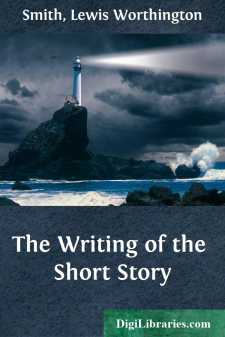Categories
- Antiques & Collectibles 13
- Architecture 36
- Art 48
- Bibles 22
- Biography & Autobiography 813
- Body, Mind & Spirit 142
- Business & Economics 28
- Children's Books 17
- Children's Fiction 14
- Computers 4
- Cooking 94
- Crafts & Hobbies 4
- Drama 346
- Education 46
- Family & Relationships 57
- Fiction 11829
- Games 19
- Gardening 17
- Health & Fitness 34
- History 1377
- House & Home 1
- Humor 147
- Juvenile Fiction 1873
- Juvenile Nonfiction 202
- Language Arts & Disciplines 88
- Law 16
- Literary Collections 686
- Literary Criticism 179
- Mathematics 13
- Medical 41
- Music 40
- Nature 179
- Non-Classifiable 1768
- Performing Arts 7
- Periodicals 1453
- Philosophy 64
- Photography 2
- Poetry 896
- Political Science 203
- Psychology 42
- Reference 154
- Religion 513
- Science 126
- Self-Help 84
- Social Science 81
- Sports & Recreation 34
- Study Aids 3
- Technology & Engineering 59
- Transportation 23
- Travel 463
- True Crime 29
The Writing of the Short Story
Categories:
Description:
Excerpt
Narrative Forms
—This little volume is meant to be a discussion of but one of the various forms that literature takes, and it will be first in order to see what are the elements that go to the making of a narrative having literary quality. A story may be true or false, but we shall here be concerned primarily with fiction, and with fiction of no great length. In writing of this sort the first essential is that something shall happen; a story without a succession of incidents of some kind is inconceivable. We may then settle upon incident as a first element. As a mere matter of possibility a story may be written without any interest other than that of incident, but a story dealing with men will not have much interest for thoughtful readers unless it also includes some showing of character. Further, as the lives of all men and women are more or less conditioned by their surroundings and circumstance, any story will require more or less description. Incidents are of but little moment, character showing may have but slight interest, description is purposeless, unless the happenings of the story develop in the characters feelings toward which we assume some attitude of sympathy or opposition. Including this fourth element of the story, we shall then have incident, description, character, mood, as the first elements of the narrative form.
—A series of unconnected happenings may be interesting merely from the unexpectedness—or the hurry and movement of the events, but ordinarily a story gains greatly in its appeal to the reader through having its separate incidents developed in some sort of organic unity. The handling of incidents for a definite effect gives what we call plot. A plot should work steadily forward to the end or dénouement, and should yet conceal that end in order that interest may be maintained to the close. Evidently a writer who from the first has in mind the outcome of his story will subordinate the separate incidents to that main purpose and so in that controlling motive give unity to the whole plot. Further, the interest in the plot will be put on a higher plane, if in the transition from incident to incident there is seen, not chance simply, but some relation of cause and effect. When the unfolding of the plot is thus orderly in its development, the reader feels his kindling interest going forward to the outcome with a keener relish because of the quickening of thought, as well as of emotion, in piecing together the details that arouse a glow of satisfaction.
—We can hardly have any vital interest in a story apart from an interest in the characters. It is because things happen to them, because we are glad of their good fortune or apprehensive of evil for them, that the incidents in their succession gain importance in our emotions. We are concerned with things that affect our lives, and secondarily with things that affect the lives of others, since what touches the fortunes of others is but a part of that complex web of destiny and environment in which our own lives are enmeshed....


